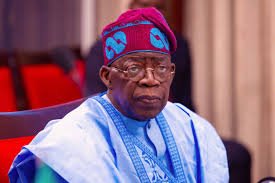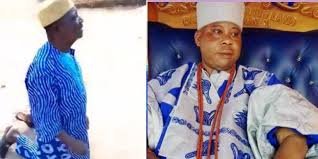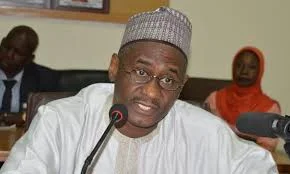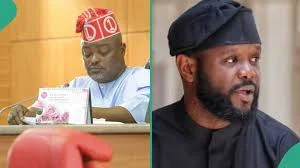PRESIDENT BOLA TINUBU has forcefully pushed back against a legal challenge seeking to compel the National Assembly (NASS) to initiate impeachment proceedings against him.
The case, filed by legal practitioner Olukoya Ogungbeje at the Federal High Court in Abuja, alleges that Tinubu’s government engaged in systematic suppression of peaceful protests—an act the plaintiff argues amounts to an impeachable offence.
However, in a robust legal response, Tinubu and the Attorney-General of the Federation (AGF), Lateef Fagbemi, SAN, have urged the court to dismiss the suit, branding it “incompetent” and “lacking in merit.”
At the heart of the case lies the fundamental issue of democratic freedoms. The Explainer learned that Ogungbeje’s suit, marked FHC/ABJ/CS/1334/2024, hinges on claims that Tinubu’s administration orchestrated a crackdown on peaceful protests across Nigeria between 1st and 10th August 2024. The plaintiff insists that such actions constitute “gross misconduct”, a constitutional basis for impeachment under Section 143 of the 1999 Constitution.
In his six-point relief sought from the court, Ogungbeje argues that the suppression of demonstrations represents an outright violation of citizens’ rights. The Explainer gathered that the legal practitioner wants the court to order NASS to begin impeachment proceedings, asserting that failure to do so would amount to a dereliction of duty.
Tinubu, through his legal team led by Senior Advocate of Nigeria Sanusi Musa, has mounted a firm defence. The Explainer noted that in their joint preliminary objection, the President and the AGF raised 18 grounds for dismissing the case, with a core argument being that the plaintiff lacks the locus standi (legal right) to bring the action.
According to the defendants, Ogungbeje is not representing any specific individuals whose rights were allegedly violated. Instead, they argue, he is acting on behalf of “faceless citizens,” which, they contend, is legally unsustainable.
The AGF further asserted that only individuals who can demonstrate a direct violation of their fundamental rights may seek judicial intervention. Section 46(3) of the 1999 Constitution, as amended, outlines the procedure for such claims, which, according to the government’s legal team, the plaintiff failed to adhere to.
Another major contention is whether the court even has jurisdiction over the case. The Explainer gathered that the defendants are challenging the competence of the Federal High Court to entertain a matter involving impeachment, arguing that such political decisions rest solely with NASS.
Additionally, they argue that Nigeria’s democratic institutions remain intact, and no constitutional breaches have occurred to warrant judicial intervention. In a counter-affidavit sworn by Gbemiga Oladimeji, a principal state counsel at the Ministry of Justice, the government insists that Tinubu’s administration upholds democratic principles.
“The President has not violated any provision of his oath of office and allegiance. There has been no breach that would warrant his impeachment,” the affidavit states.
The government further argues that protests held in August 2024 were not suppressed, but rather regulated in accordance with a court order limiting demonstrations to designated areas. Security forces, it claims, were deployed to protect protesters rather than suppress them.
ALSO READ: NDLEA Rescues Man After Removing 57 Deadly Cocaine Pellets from His Body
This case raises fundamental questions about governance and civic rights in Nigeria. The Explainer learned that this is the first time a legal action has been filed seeking to compel NASS to commence impeachment proceedings against a sitting president based on alleged human rights violations.
While the lawsuit may be dismissed on technical grounds, it underscores growing tensions between the government and civil society regarding freedom of expression and assembly. Amnesty International has reported a significant increase in protests across Nigeria in 2024, primarily driven by economic hardship, governance concerns, and police brutality. Between 1st and 10th August 2024, nationwide #EndBadGovernance protests were met with a deadly crackdown, including killings and mass arrests. The Nigerian authorities have, at times, labeled the protests as deliberate attempts to unleash violence.
The Centre for Democracy and Development (CDD) has also highlighted concerns regarding the government’s approach to peaceful protests. In a statement, CDD emphasized that demonizing protests undermines the constitutionally guaranteed right to peaceful assembly and could lead to increased civic disengagement and citizen apathy.
Justice James Omotosho, presiding over the case, has adjourned the matter to 4th March 2025 to allow the plaintiff’s legal counsel, Stanley Okonmah, to respond to Tinubu’s objections.





















